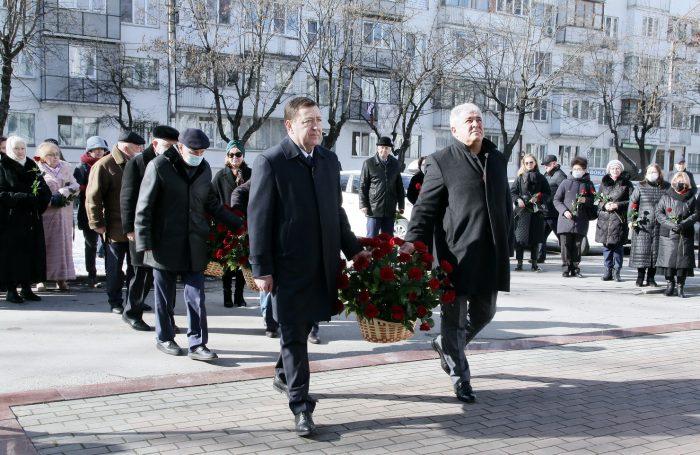We remember Alim Keshokov

Today, January 29, is the day of memory of the People’s Poet of the Kabardino-Balkarian Republic, Hero of Socialist Labor, laureate of the State Prize of the RSFSR. Gorky, the State Prize of the USSR Alim Keshokov, a solemn ceremony of laying flowers at the foot of his memorial near the building of the Local Administration of the capital of the republic was held. The Minister of Culture of the KBR Mukhadin Kumakhov, the President of the ICA, a member of the Board of Trustees of the KBSU Khauti Sokhrokov, the head of the local administration of the Chegemsky district Yura Borsov, the poet’s fellow countrymen, representatives of the scientific intelligentsia and the cultural community of Nalchik, representatives of the Union of Writers of the KBR came to the monument.
Alim Pshemakhovich passed away in 2001 in Moscow, but was buried in his family village — Shalushka, Chegemsky district. And it is no coincidence that there are monuments erected in his honor in almost all settlements of the KBR. The name of Alim Keshokov is associated with the development of Kabardino-Circassian poetry and artistic prose. His contribution to the development of Kabardian dramaturgy, journalism, literary and artistic criticism is significant.
Keshokov Alim is the author of numerous poetry collections, several plays, a screenplay, novels, the autobiographical novel «View from the White Mountain», short stories and short stories. With all his rich and varied work, he determined the leading trends in the development of Kabardino-Circassian literature. Keshokov’s contribution to the development of the most complex variety of Kabardian fiction — a multifaceted novel — is significant. He created 9 novels that became milestones not only in Kabardian, but also in North Caucasian prose as a whole: “A Wonderful Moment” (1958), “The Green Crescent” (1965), “The Peaks Don’t Sleep” (1970), “The Valley of the White Lambs” ( 1971), Broken Horseshoe (1973), Saber for the Emir (1984), Pear Blossom (1985), Moonrise (1977), Roots (1991). In his works, Keshokov managed to recreate and reveal the chronicle of generations, to show the origins of the heroism and selflessness of his people. Poetry, prose, drama Keshokov Alim became the property of many countries and peoples. His works have been translated into English, Arabic, Spanish, German, Russian, Slovak, Finnish and other languages. Almost all works of art by Alim Pshemakhovich can be found in the KBSU Library, many of them, in particular, are presented these days at the book and illustrative exposition dedicated to the classics of Kabardian literature.

